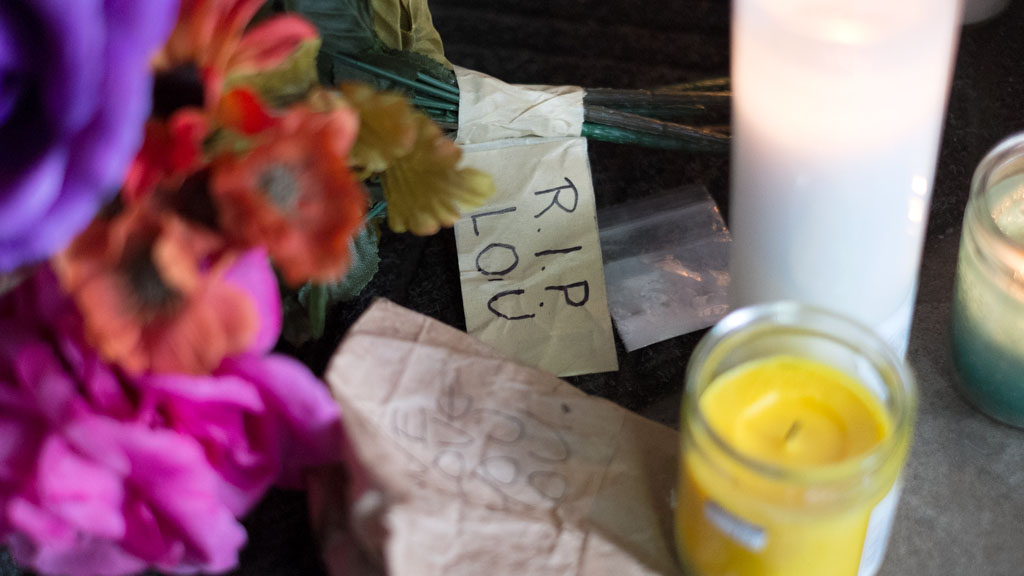Positively wild: Lou Reed and transgender visibility
Tributes have been stacking up since rock legend Lou Reed passed away, but little has been said about his contribution to perceptions of gay and transgender people – until now, writes Paris Lees.

I’m friends with many trans people on Facebook and most of them, particularly those of a certain age, are genuinely upset about the death of Lou Reed.
Why? His biggest hit, Walk on the Wild Side, famously referenced a gay hustler and several trans people, including his friend and Warhol-muse Candy Darling.
A song about transgender women and a male sex worker would probably cause a storm today, 41 years later. It went largely unnoticed at the time, however, possibly because it was so taboo that most listeners simply wouldn’t have known what it was about. When Walk on the Wild Side hit the charts in 1972, homosexuality was still classified as a mental illness by the American Psychiatric Association.
When he released Walk on the Wild Side, it wasn’t just edgy – it was positively wild.
Consensual gay sex had been legal in England and Wales for five years, but would continue to be criminal for another eight in Scotland and 10 in Northern Ireland. Reed was acutely aware of negative attitudes toward sexual and gender minorities. As a teenager he was forced to undergo electroconvulsive therapy in a bid to “cure” his attraction to other men.
He later said of the experience: “They put the thing down your throat so you don’t swallow your tongue, and they put electrodes on your head. That’s what was recommended in Rockland County to discourage homosexual feelings. The effect is that you lose your memory and become a vegetable. You can’t read a book because you get to page 17 and have to go right back to page one again.”
So when he released Walk on the Wild Side it wasn’t just an edgy thing to do – it was positively wild.
Candy Darling
Through his relationship with Andy Warhol he was friends with several transgender women, of which Candy Darling was the most famous. Part of the reason the 60s and 70s were so creatively fruitful is that boundaries were disappearing, as people from all walks of life socialised together for the first time. Aristocrats found they were sharing VIP areas with rock stars, women were gaining access to spaces previously reserved for men and all sorts of people were indulging in all sorts of drugs. People were trying new experiences and questioning everything that had previously been presented to them as solid and immutable – including what it means to be man or a woman.
Indeed, sexual ambiguity was hot stuff in the early 70s. David Bowie wasn’t the only person playing with gender presentation, but was certainly one of the most successful at selling his androgynous image to the public. There were rumours, too, that the cover girl for Roxy Music’s For Your Pleasure album was trans.

Warhol made many films inspired by and starring transgender women – and Reed, it seems, had his own personal trans muse in the form of Rachel, a Mexican hairdresser variously described as transvestite and transsexual by her contemporaries.
Reed never forgave reviewer Lester Bangs for referring to her as “grotesque, abject… like something that might have grovellingly scampered in when Lou opened the door to get milk or papers in the morning.” Reed and Rachel appear to have been lovers for much of the 70s and fans suggest she inspired some of his greatest work.
Watch Paul Mason's obituary for Lou Reed, the lifelong rebel who made weird cool, here
“Rachel knows how to do it for me,” said Reed in an interview with Bambi magazine. “No one else ever did before. Rachel’s something else.”
Nevertheless, by the end of the decade Rachel was out of his life, and little suggests that Reed formed another romantic relationship with a transgender person.
‘Gender-fluid’ feel
His appreciation of gender ambiguity seems to have been genuine and lifelong though. I was impressed to find myself sitting in front of him at Meltdown Festival last year, where we watched the extraordinarily talented Joey Arias perform his unique drag act as Billie Holiday. Transgender singer Antony Hegarty, of Antony and the Johnsons, curated the festival and there was a decidedly gender-fluid feel to proceedings. Reed, you may recall, worked with Antony and the Johnsons in 2004, contributing vocals and guitar to Fistful of Love.
I spoke to Against Me lead singer and transgender icon Laura Jane Grace about her thoughts on Reed: “His song about Candy Darling was one of the first times I’d heard someone sing about a trans person, and romanticize it too. Any time a trans person is mentioned culturally, and isn’t the butt of a joke, it’s a good thing. Just having it there in the public consciousness is a good thing.”
Reed represents a lost era and his death will only add to his legend. Sadly, that era, though musically and culturally rich, was a poor time to be gay or trans. For many, Reed’s legacy will be his simple acknowledgement that transgender and gay people existed, at a time when the mainstream preferred to pretend we didn’t. We should remember him fondly.
Paris Lees (@ParisLees) is a journalist and founder of digital magazine Meta, and was recently named the UK’s most influential lesbian, gay, bisexual or transgender figure.
-
Latest news
-
‘Government responsiveness should be improved’ says infected blood inquiry chair4m

-
Infected Blood scandal: How UK failed on a global scale4m

-
‘There’s a strong evidential basis’ for ICC to grant arrest warrants for Netanyahu, says criminal law expert4m

-
International Criminal Court prosecutor seeks arrest warrants for Israel PM and Hamas leaders3m

-
‘Highly unlikely there was foul play’ in Iran president helicopter crash, says Tehran professor5m

-




